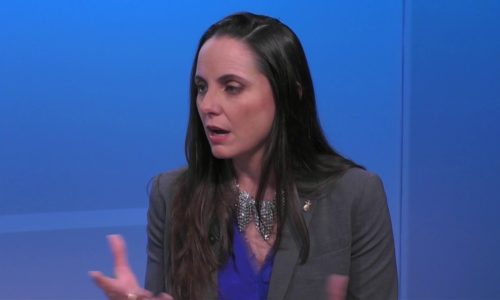Sugar: The Sweet Danger |
Natalie Castro, Registered Dietitian with Baptist Health South Florida, explains sugar stimulates our pleasure responses and our reward responses in our brain. “We have done PET scans and looked at brain activity when we are having sugar, and it responds just the same way as alcohol and cocaine or drugs.”
About sweets, she says the only thing is that they are not part of a food group, they are extra calories that provide no nutrients.
Transcript
Why so many people crave sugar well I mean the thing is that it actually stimulates our pleasure responses and our reward responses in our brain so we’ve actually done PET scans and looked at the brain activity when we’re having sugar and it responds just the same way as alcohol and as cocaine our drugs so this is something that can be something that influences so when you have something that’s pleasurable and you enjoy it of course you’re gonna want more right so that’s that’s why we crave sugar how much sugar does the average American eat a year well I think it’s estimated something around 150 pounds per year which is crazy so that’s about 12 to 18 teaspoons of sugar a day but it actually can be more and I’ll show you in a little bit but Coke for example or soda can can have about 10 teaspoons of sugar oh my goodness okay so is there anything wrong with eating sweet so I’m gonna be completely honest here I went on the bright line this weekend and they come around with the little basket of treats I took two bags of gummy worms wrong with sweets so the only thing about the sweets is like you mentioned um when we opened that it’s not part of a food group so it’s just added extra calories that provide no nutrients right so it’s not really providing us with anything other than this pleasure so the problem with it is that it’s adding those extra calories that will end up equaling added weight so when we have added weight then that’s where the health problems come on you








